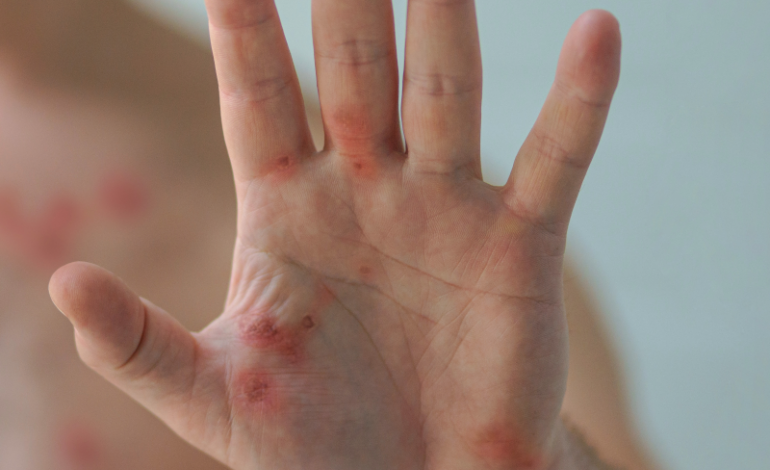Abdali Hospital - 25th floor - Amman - Jordan

Overview
-Mpox, previously known as monkeypox, is a viral illness caused by the monkeypox virus.
-Mpox is an infectious disease that can cause a painful rash, enlarged lymph nodes, fever, headache, muscle ache, back pain and low energy. Most people fully recover, but some get very sick.
-There are vaccines for mpox. Vaccination should be considered along with other public health interventions.
-The natural reservoir of the virus is unknown, but various small mammals such as squirrels and monkeys are susceptible.
Transmission
- Mpox spreads from person to person mainly through:
1. close contact with someone who has mpox , skin-to-skin (touching and sex), mouth-to-mouth or mouth-to-skin contact (such as kissing)
2. face-to-face with someone who has mpox (such as talking or breathing close to one another, which can generate infectious respiratory particles).
-During pregnancy or birth, the virus may be passed to the baby. Contracting mpox during pregnancy can be dangerous for the fetus or newborn infant and can lead to loss of the pregnancy, stillbirth, death of the newborn, or complications for the parent.
-Animal-to-human transmission of mpox occurs from infected animals to humans from bites or scratches, or during activities such as hunting, skinning, trapping, cooking, playing with carcasses or eating animals.
Signs and symptoms
-Mpox causes signs and symptoms which usually begin within a week but can start 1–21 days after exposure. Symptoms typically last 2–4 weeks but may last longer in someone with a weakened immune system.
-Common symptoms of mpox are:
• rash
• fever
• sore throat
• headache
• muscle aches
• back pain
• low energy
• swollen lymph nodes.
-Some people also have painful swelling of their rectum (proctitis) or pain and difficulty when peeing (dysuria) or when swallowing.
-People with mpox can pass the disease on to others until all sores have healed and a new layer of skin has formed. Some people can be infected without developing any symptoms. Although getting mpox from someone who is asymptomatic (not showing symptoms) has been reported, information is still limited on how common it is.
-Children, pregnant women and people with weak immune systems, including people living with HIV that is not well controlled, are at higher risk for serious illness and death due to complications from mpox.
Diagnosis
-Identifying mpox can be difficult because other infections and conditions can look similar. It is important to distinguish mpox from chickenpox, measles, bacterial skin infections, scabies, herpes, syphilis, other sexually transmitted infections, and medication-associated allergies.
-The preferred laboratory test for mpox is detection of viral DNA by polymerase chain reaction (PCR).
Self-care and prevention
-Most people with mpox will recover within 2–4 weeks. Things to do to help the symptoms and prevent transmitting mpox to others:
Do
• contact your health care provider for advice
• stay at home and in your own, well-ventilated room if possible
• wash hands often with soap and water or hand sanitizer, especially before or after touching sores
• wear a mask and cover lesions when around other people until your rash heals
• keep skin dry and uncovered (unless in a room with someone else)
• avoid touching items in shared spaces and disinfect shared spaces frequently
• use saltwater rinses for sores in the mouth
• take warm baths with baking soda or Epsom salts for body sores
• take over-the-counter medications for pain like paracetamol (acetaminophen) or ibuprofen.
Do not
• pop blisters or scratch sores, which can slow healing, spread the rash to other parts of the body, and cause sores to become infected.
• shave areas with sores until scabs have healed and you have new skin underneath (this can spread the rash to other parts of the body).
Reference
WHO